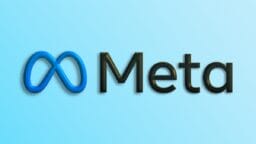HILLSBOROUGH COUNTY, Fla. — The proliferation of artificial intelligence (AI) is increasingly evident, especially within the realm of education. Over the past year, this transformative technology has permeated various facets of learning and teaching, compelling educators to adapt swiftly.
“AI is not merely a glimpse into the future; it is a current reality,” asserted Mark Mansour, the lead instructor at Clearwater High School’s Career Academy for International Culture and Commerce. Eagerly, Mansour has adopted AI into his pedagogical practices, viewing it as an indispensable tool rather than a hindrance.
Adapting to Technological Advancement
“Let’s confront the truth: AI is here to stay. We must address its implications and empower our students with the skills to navigate this technology,” Mansour emphasized, showcasing his commitment to forward-thinking education.
The incorporation of AI into classroom instruction is not confined to high school; educators at the elementary level, such as Consuelo Blake from Hillsborough County, are also beginning to integrate these tools. “We’re teaching children how to code, and last year, I introduced them to various technologies,” Blake remarked, highlighting a budding awareness of AI’s significance at an early age.
Enhancing Educational Practices
AI’s utility extends beyond mere coding; it significantly aids lesson planning for educators. “It assists us in formulating higher-order thinking questions and allows for customized lesson plans tailored to individual student needs,” noted Mansour, speaking to the versatility that AI brings to the educational landscape.
Yet, the question remains: what is the stance of school districts regarding the utilization of AI? While many leaders agree that the integration of AI is largely contingent upon individual teachers’ discretion and the subjects they teach, there is an overarching acknowledgment of the necessity for structured guidance.
In Hillsborough County, Superintendent Van Ayres revealed the establishment of a specialized committee focused on AI. “AI is ever-evolving and consistently changing; thus, we must remain vigilant and adaptive,” Ayres stated, reflecting the dynamic nature of this technology.
Navigating Ethical Implications
However, amid enthusiasm lies a palpable concern regarding potential misuse. School officials are acutely aware of the risk that students might exploit AI for unethical behaviors such as cheating and plagiarism. This awareness underscores why districts are actively developing policies to mitigate these issues.
“The prevalence of technology necessitates ongoing vigilance. Students will inevitably employ AI; our task is to monitor and ensure that it is used appropriately,” Ayres cautioned, illustrating the dual role educators play in fostering responsible use.
Educators like Mansour are proactively addressing these concerns with their students. “I typically begin discussions with a focus on ethics surrounding AI. The excitement is palpable, as I guide them on leveraging AI as a beneficial resource instead of a detrimental one,” Mansour explained, underscoring the importance of ethical education in tandem with technological proficiency.
Future Directions for AI in Education
Across the educational landscape, leaders recognize the necessity of adapting to AI’s permanence. “We must all acknowledge this reality and strategize ways to utilize AI as a tool for enhancing instruction,” Ayres concluded, evoking a collective resolve among educators to harness the positive potential of AI.
Key Takeaways
- AI is being intensively integrated into educational settings across various grade levels.
- Teachers are leveraging AI to improve lesson planning and foster critical thinking skills.
- District leaders are developing policies to manage the ethical use of AI and curb academic dishonesty.
- Educators are focusing on instilling a sense of responsibility in students regarding the use of AI technologies.
The dialogue surrounding artificial intelligence in education is ongoing and complex, yet the commitment to its thoughtful integration illustrates a proactive approach to preparing students for an increasingly sophisticated world.
Source link: Abcactionnews.com.






